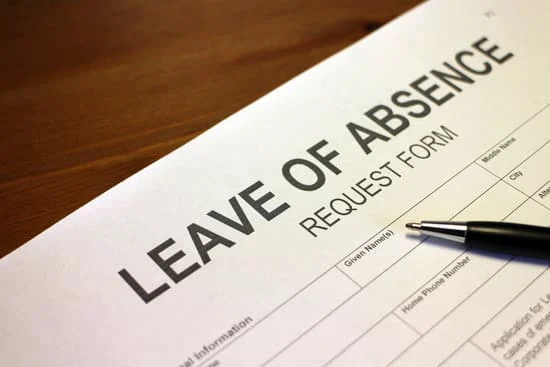For almost a year now Americans have channeled their inner Johnny Paycheck, telling employers to “Take This Job and Shove It” as more than 4 million workers a month since June 2021 have voluntarily left their jobs.
“The pandemic-era trend known as the “Great Resignation” remains a prominent feature of the labor market, as favorable conditions lead workers to quit their jobs at near-record levels in search of better (and ample) opportunities,” reported CNBC.
Of course, those often riding off in the sunset searching for greener pastures often find that the grass isn’t always greener which is leading some to a “Great Regret”.
“Quitting isn’t all it’s cracked up to be,” reported the USA Today. “Most of the millions of Americans who quit their jobs during the Great Resignation regret the move, don’t like their new position enough to stay or are searching for a new gig, according to a Harris Poll survey for USA TODAY March 18-20.”
“Great Midlife Crisis” Now Fuels the Great Resignation
While the Great Resignation was fueled in its early stages by Millennial and Gen-Z workers, the trend has now shifted to more experienced, higher-paid employees.
“Higher-paid workers are increasingly quitting their jobs, as the Great Resignation – also known as the Great Reshuffle – enters its second year,” reported Recode. “Earlier in the pandemic, the trend was led by younger, less-tenured workers in low-paying industries like retail, food service, and health care. Now, the main growth in quit rates is coming from older, more tenured workers in high-paid industries like finance, tech, and other knowledge worker fields, according to data from two separate human resources and analytics companies.”
Like their younger co-workers have learned this past year, these older workers quitting may soon be singing a different (but less publicized) tune along the lines of Vince Gill’s “The Price of Regret”.
“There’s a lot of conversation around the “Great Resignation” as employers are losing talent to other companies that boast higher pay, cool perks, flexible work, sign-on incentives and professional growth opportunities,” writes Bernard Coleman in Inc. “It’s an interesting phenomenon but we don’t speak enough to the other side of the coin, something called the ‘Great Regret’ or the ‘Big Mistake’ – where an employee leaves one company for another believing the grass to be greener and it turns out to be, in fact worse than where they left.”
Survey Says: Only 26 Percent of Job Switchers Want to Stay in New Position
Many of the employees that have voluntarily quit their jobs during the Great Resignation are having a form of “buyers’ remorse” where they are regretting their decision.
“Many workers acted hastily amid a pandemic that fostered severe worker shortages, a seismic shift to remote work and widespread burnout, employment experts say,” reports the USA Today.
The results of the Harris Poll survey are a stark reminder of this Great Regret with:
- About one in five workers who quit during the past two years regret it
- Just 26 percent of job switchers say they like their job enough to stay
- A third are already searching for a new position with better working conditions, prestige or pay
“It appears that a large segment of the people who changed jobs during the Great Resignation regret quitting and have buyer’s remorse,” says Forbes.
The Harris Poll survey says that of those with regrets:
- 36 percent cite a loss of work-life balance
- 30 percent say their new role is different than what they expected
- 24 percent miss the company culture of their previous job
- 24 percent admit they did not evaluate the pros and cons of leaving before quitting
The bottom line, says the USA Today, is that “fewer than 4 in 10 quitters feel happy, successful or valued in their new roles.”
Hello, I Must be Going: Many Workers Requitting Quickly
Some of those feeling the Great Regret from their Great Resignation are acting quickly to change jobs yet again.
The Muse CEO Kathryn Minshew told the USA Today that “many of those harboring regrets aren’t staying in their new jobs for the minimum one year that used to be considered standard.”
A survey by The Muse found that 72 percent of respondents that left their jobs recently have experienced “shift shock.”
Minshew said it’s “that feeling when you start a new job and realize, with either surprise or regret, that the position or company is very different from what you were led to believe.”
And forget one year, the survey found that some workers were willing to give their new surroundings just two to six months with:
- 41 percent saying they would give a new job just two to six months if they felt Shift Shock as a new hire
- 80 percent said it’s okay to leave a new job before the six month-mark if the position did not live up to expectations
- 48 percent said they would be open to getting their old job back if they felt Shift Shock at the new company.
“Many are victims of the bait and switch – jobfished,” Mark Anthony Dyson, founder of The Voice of Job Seekers, told Forbes.
Open Arms: Welcoming Back the Great Regretters
Bernard Coleman in Inc. says that employers should be open to those workers that want to boomerang back to their old positions.
“Everyone knows there is a war for talent and recruiters everywhere are scrambling to find new talent. Recruiters needn’t look too far, they should look at former employees,” writes Coleman.
Far from burning bridges when employees quit, Coleman suggests that companies build an alumni program to reach out to former talent.
“Communicate the latest news, share cultural moments and all the great things they’re missing,” writes Coleman. “The grass is often not greener and former talent might just need a nudge to consider coming back.”
Those returning may be more loyal and appreciative … and much more likely to not say “take this job and shove it” in the future.






